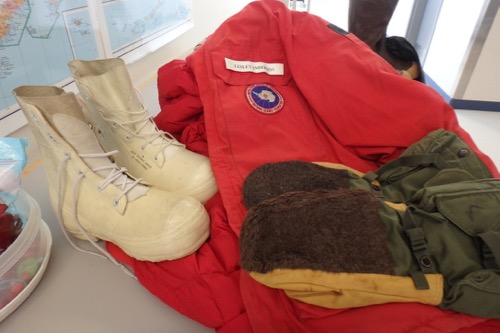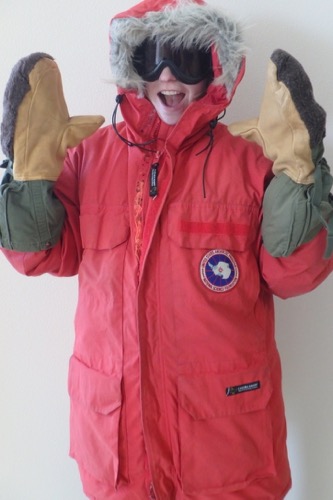Daily Journal
It is now a month after the training session and I have spent the past 4 weeks answering questions about my Alaska trip and telling people yes, it really did get to 0 degrees when I was visiting. But mostly, people have been asking me what’s next on my PolarTREC agenda.
The answer is a lot of planning and preparing.
In a few weeks all the PolarTREC teachers will be participating in our second webinar where we will all discuss our pre-deployment and program requirements. This gives us a chance to discuss logistical and detailed questions with the ARCUS and PolarTREC staff face-to-face (well screen-to-screen I guess).
After this meeting, all of our schedules will be different since the expeditions occur at varying times over the next year. For me, I will be traveling to Ames, Iowa and Iowa State University in June to meet with Dr. Neal Iverson, Dr. Lucas Zoet, and the rest of the research team for a one day conference to discuss logistics prior to the expedition and our goals and schedule while in the field. I know there will be a lot of information coming my way during my short trip, but I’m so excited to learn more about the exact locations and mountain glaciers we will be measuring, and the methods we will be using to do this research. For this study, we will be deploying drones with high-resolution mapping equipment that will capture the shape of the exposed bedrock left behind from the melting of the mountain glaciers. This is an area of scientific research I do not have much experience in, and I am looking forward to learning more about the engineering and computer modeling techniques involved.
And finally, before we leave for the field in August, the entire scientific team, some of the PolarTREC staff members, and a representative from the contracted polar services company will meet for another webinar to get down to the nitty gritty of exactly what will be needed while we are in the field. The National Science Foundation (NSF) uses a company called CH2M Hill to help make the field arrangements for all Arctic expeditions. They will discuss travel to and from the field as well as between the different study locations, lodging and meals in the field, and help stock us with some of the equipment we will need for field work. While I won’t get to wear the awesome “Big Red” jacket that everyone gets while in the field in Antarctica, I will have some awesome gear loaned to me for the duration of the field work.
Can you say crampons anyone?!
 Example of typical "Extreme Weather Gear" worn by scientists and researchers in Antarctica.
Example of typical "Extreme Weather Gear" worn by scientists and researchers in Antarctica.
 PolarTREC 2018 teacher, Lauren Neitzke Adamo wearing the "Big Red" jacket that is issued to all scientists and researchers working in Antarctica.
PolarTREC 2018 teacher, Lauren Neitzke Adamo wearing the "Big Red" jacket that is issued to all scientists and researchers working in Antarctica.
So as I work my way through all my pre-field activities, I have a favor to ask all of you. Tell me what you want to see or have me write about either before the field expedition or while in Switzerland. I have lots of ideas but I always make room for special requests!
Daily Haiku
Thursday, April 26, 2018
- Pre-field planning from New Brunswick, NJ.
Back to real life now
Dreaming of glacial landscapes
Much plans to be made


Comments
Add new comment